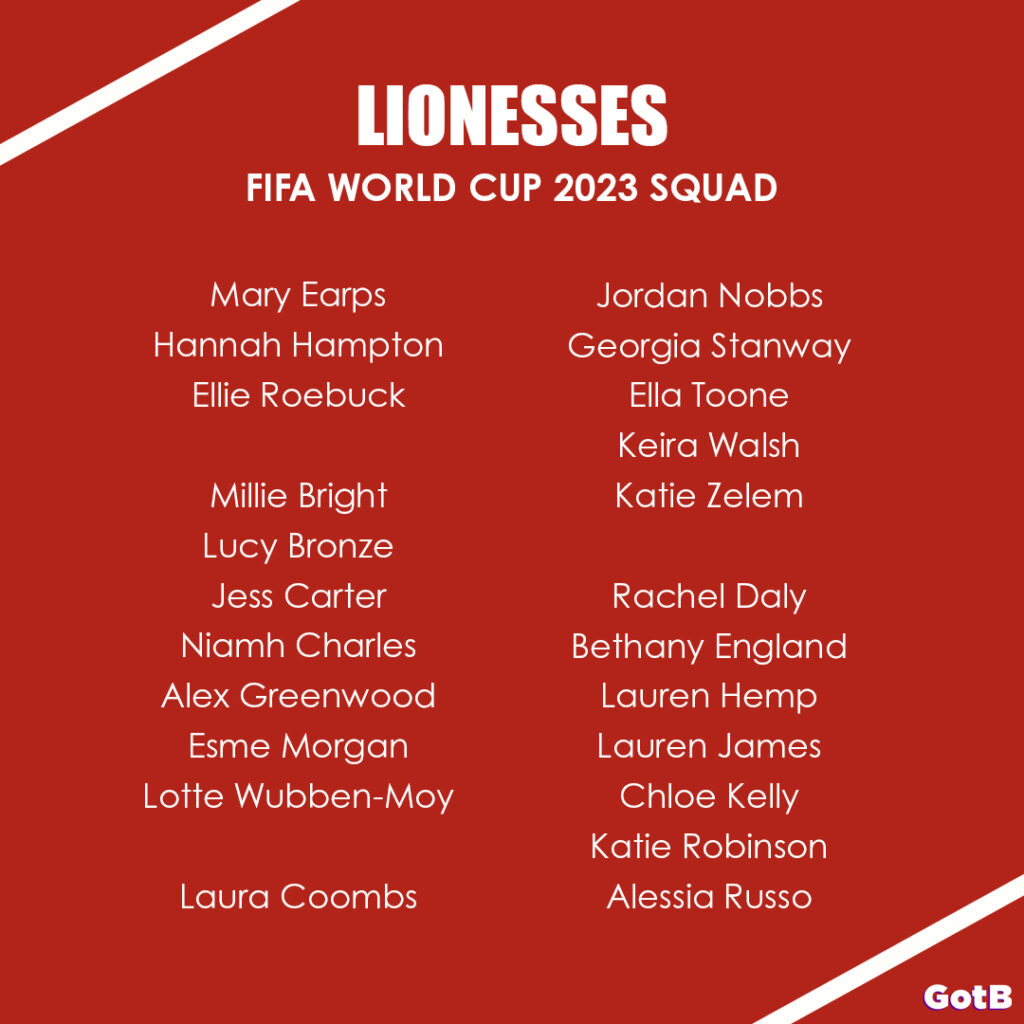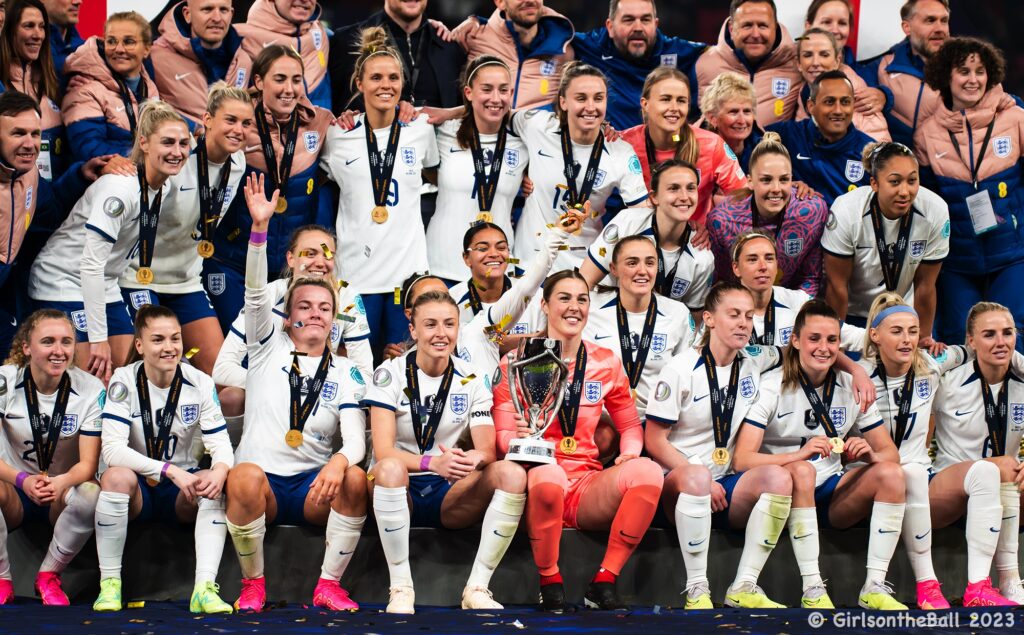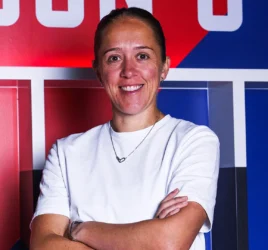With just 50 days until the start of the FIFA Women’s World Cup this summer, Sarina Wiegman has named her 23-player England squad ahead of the trip to Australia. Bethany England returns to the fold, while six players – Esme Morgan, Niamh Charles, Katie Zelem, Laura Coombs, Lauren James and Katie Robinson – will be part of a major tournament for the first time.
The stand-out inclusion was that of England. The Tottenham forward has been in sensational form for her club, scoring 12 goals in 12 league games and finishing the season as the Barclays WSL’s third top scorer. But there was uncertainty around her status with the Lionesses, having not appeared in a national squad since September last year. However, as Wiegman noted, her form would have been impossible to ignore. “[She’s included] because of her performances,” said the manager. “She was at Chelsea, and she didn’t get the minutes… She made a move, and she started playing in a hard situation… but how she did and how she performed and also how much resilience she showed, I think that made us make the decision to get her in the squad.”

Perhaps the biggest surprise was the absence of Maya Le Tissier. The Manchester United defender has been ever-present for her side and is considered by many as one of the performers of the season. She is one of three on the standby list with Emily Ramsay and Jess Park, and along with Park will head to Australia with the squad until the opening game. Tough decisions have had to be made across the board, but Wiegman noted that leaving her out was “a hard call”. “I don’t think you can say there’s one tough decision,” the England manager said, “because you’re talking about individuals, you’re talking about positions but you’re also talking about combinations and balance in the team. When you pick one player, that has consequences for other parts of your team, so that has been really hard.”
How Wiegman dealt with England’s high profile injury problems was a major question before the announcement. Captain Leah Williamson and Fran Kirby were definitely out. Beth Mead, who suffered a ruptured ACL back in November, was in all honesty severely unlikely to make a return. The fact that she therefore did not make it is not entirely a surprise. There was, however, hope around the fitness status of experienced defenders Millie Bright and Lucy Bronze who have both been out with knee injuries in recent months. Both are fit enough to make the squad – Bronze is ready to play in the Champions League Final this weekend and Bright “is in a good place” according to the England manager.

It is these injuries that have put a question mark over the Lionesses’ hopes this summer. With only six players having amassed over 50 caps, it is perhaps a relatively inexperienced squad at first glance. However, the majority were involved in England’s triumph at the European Championships last summer and, despite the lack of caps, possess all the experience that brings. “We are a little bit in transition now, but I still think we have very talented players,” Wiegman stated. “We will make sure we are at our best and see how far we can get.”
Preparation is going to be key to ensure they can perform to their potential. This squad announcement is one of the earliest as England look to hone in and provide the best environment for the challenges ahead. But it has not been without its disruptions. The travel to the southern hemisphere is a factor, putting a greater emphasis on rest and recovery than in a tournament closer to home. They had planned to call up the team to St. George’s Park from 19 June but are still in discussions with clubs and the European Club Association around the release of players. “It’s very constructive but it’s not finalised yet,” said Wiegman. “When you’re in a top-sport environment, when you go to a World Cup, it’s the highest level, the most intensity and volume, so you have to be at your highest levels. We also know that if you have more than two weeks’ rest…that’s not good preparation for the players and the welfare of the player wouldn’t be good… Knowing we’re going to the other side of the world, that takes a couple of days too. It’s two days for travelling, you can’t start training straight away because you first have to do the jet-lag, so we really need that time to get prepared, so I just hope that we keep going with the good conversations and we resolve this.”
The late timing of these talks are a source of frustration for international managers who have had plans in place for this World Cup for months. “Of course, that’s frustrating because we have all our plans and we thought we were all set and then like a month ago, all of a sudden, things change,” said Wiegman. “We didn’t expect that; it is so late. I do understand it’s about the calendar. It’s really hard. It’s about players having rest; after the tournament, players need to have rest. We basically now have an in-season break so they also have to get prepared for the World Cup and have a little rest too but after the tournament sometimes it’s hard to get the rest because competitive games start again. That’s why we have to collaborate and talk to each other to try to solve that. But now it’s a short time like this. We’re all set and a month before we start, it all changes. That’s frustrating and it’s hard too because I think this is not the time to do this. It’s a time to do that later and solve it after this tournament.”
Without doubt, however, the Lionesses are one of the best placed nations to overcome these obstacles. With the decision made and the 23 nailed down, Wiegman’s and England’s focus can now turn fully to their opener against Haiti in Brisbane on 22 July.


